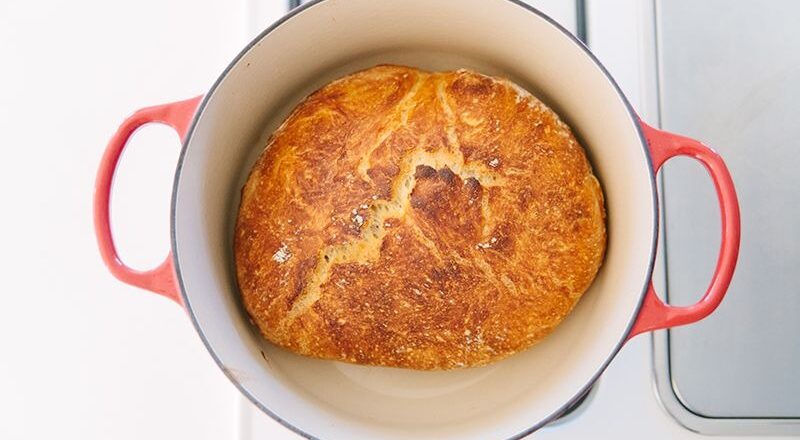If you’ve been searching for high-quality cookware, you’ve probably found yourself asking, why is Dutch oven so expensive? The Dutch oven’s price often raises eyebrows, but its worth is deeply justified by several factors.
This article explains these factors, presenting the tremendous benefits and unique qualities of Dutch ovens.

The History and Legacy of Dutch Ovens
Dutch ovens have been around for centuries, originating in the Netherlands in the 17th century. Their design has stood the test of time due to its versatility and durability. This storied past adds to their value.
:max_bytes(150000):strip_icc()/GettyImages-1058029026-2000-3e7d0a3579d346108bb901a51501115f.jpg)
Material Quality
Cast Iron Dominance
Most Dutch ovens are made from cast iron, which is known for its strength and heat retention. This material is not only durable but also provides even heating, essential for high-quality cooking.
Enamel Coating
Many Dutch ovens feature a protective enamel coating. This layer prevents rust, enhances durability, and makes the oven easier to clean, adding to the cost but improving usability and longevity.
Check how to make bread in Dutch Oven.

Manufacturing Process
Craftsmanship
The precision and attention to detail in crafting a Dutch oven contribute significantly to its cost. High-end brands employ skilled artisans to ensure each piece meets rigorous standards.
Quality Control
Strict quality control ensures every Dutch oven is flawless. This meticulous process reduces defects but increases production costs.
Brand Reputation
Established Brands
Renowned brands like Le Creuset and Staub are synonymous with quality. Their reputation boosts their prices but assures consumers of superior performance.
Guarantees and Customer Support
High-end brands offer excellent customer support and warranties, providing peace of mind that adds value and justifies the cost.
Functionality and Versatility
Multi-Use Tool
A Dutch oven can sear, braise, bake, and more. This versatility reduces the need for multiple cookware pieces, making it a cost-efficient investment despite the higher initial price.
Performance
The consistent and excellent cooking performance adds to its value, especially for professional chefs and cooking enthusiasts.
Durability and Longevity
Lifelong Investment
With proper care, a Dutch oven can last a lifetime. This durability makes the initial expenditure more reasonable over the long term.
Heirloom Potential
Many families pass down Dutch ovens through generations, adding emotional and practical value to their high cost.
Aesthetic Appeal
Design and Colors
Beyond functionality, Dutch ovens are often beautifully designed with vibrant colors, becoming a centerpiece in any kitchen.
Tableware to Cookware
They easily double as serving dishes, enhancing their practical value and justifying their price.
Eco-Friendly Advantages
Sustainable Materials
Many Dutch ovens use eco-friendly materials and processes, which, while costly, reflect a commitment to sustainability.
Less Waste
Their longevity means less frequent replacements and fewer environmental impacts compared to cheaper alternatives.
Health Benefits
Non-Reactive Surface
The enamel coating is non-reactive, preventing harmful chemicals from leaching into food, making it a healthier choice.
Minimal Oil Usage
Its excellent heat distribution often requires less oil, promoting healthier cooking methods.
Conclusion
So why is a Dutch oven so expensive? The reasons are manifold, including premium materials, meticulous manufacturing, versatility, durability, aesthetic appeal, and health benefits. Though the initial cost may be high, the long-term advantages make it a valuable addition to any kitchen.
Find more on cleaning Dutch oven from my favorite resources
Further Reading
FAQs
Q: Is a Dutch oven worth the cost?
A: Yes. Its durability, versatility, and excellent cooking performance make it a good investment.
Q: What makes a Dutch oven different from regular pots?
A: Dutch ovens offer superior heat retention and even cooking. Their versatility allows them to be used for various cooking methods.
Q: Can a Dutch oven be used on all stovetops?
A: Most Dutch ovens are compatible with all stovetops, including induction, but you should always check the manufacturer’s guidelines.
As an Amazon Associate, I earn from qualifying purchases.

